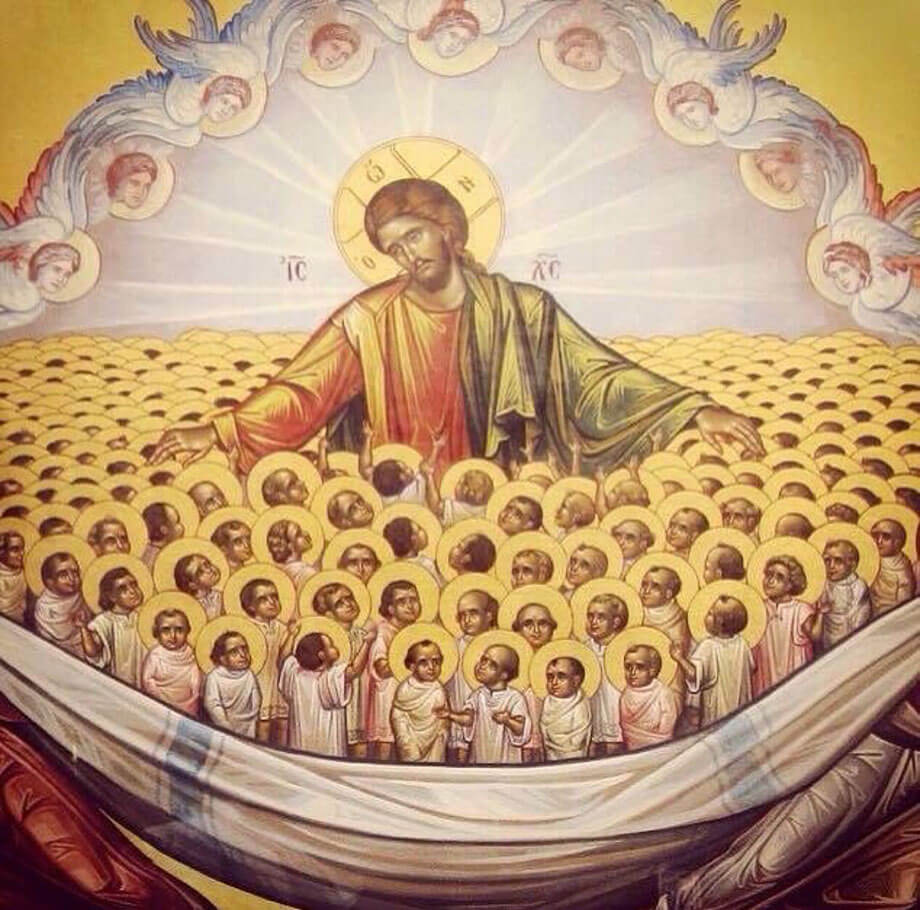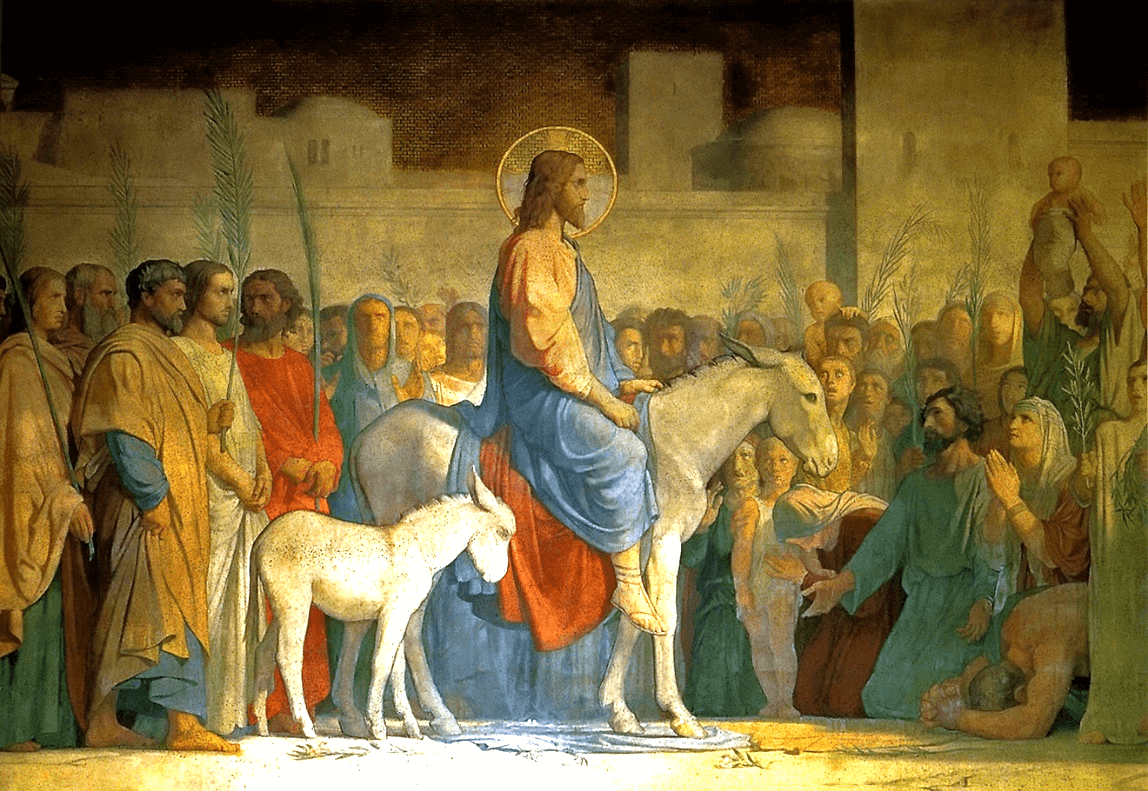On Christmas Day, the Holy Evangelist John said to us, “He came to his own, and his own did not receive him.” This didn’t start once Jesus began to preach and teach; it began that silent, holy night in Bethlehem. When the magi arrived in the capital of Israel, it wasn’t just Herod who was troubled by their seeking a King it was also “all Jerusalem with him.”
The magi had the Wisdom which came to them when Israel was carried into exile. The Hebrews brought their Scriptures with them, and translated them into Aramaic, called the Targums. In them, the Persians took Balaam’s final oracle to heart: “A star shall come out of Jacob, and a scepter shall rise out of Israel.” But it seems they didn’t have Micah’s prophecy (even though he was a contemporary of Isaiah and predated the Exile). For those in Jerusalem, it was a well-known answer. The chief priests and scribes tell them that they will find the King “In Bethlehem of Judea, for so it is written by the prophet:
‘And you, O Bethlehem, in the land of Judah,
are by no means least among the rulers of Judah;
for from you shall come a ruler
who will shepherd my people Israel.’ ”
Yet, even though they are quick to answer, none of them follow the Magi to Bethlehem. They are troubled rather than joyful, with their eyes fixed on earth and despising the newly-risen Star.
The magi worship the King of Israel with sincere hearts, but are warned of Herod’s deceit. He has no intention to worship the infant King. Mad Herod would rather take care of Jesus the way he did his own family—by killing him. After the magi don’t return, Herod’s full rage is unleashed upon the boys of Bethlehem. In an act of violence unparalleled in its day, Herod slaughters every boy two years old and under. And all Jerusalem and the chief priests and scribes silently consent to his extermination.
The boys in Bethlehem give up their lives while their brother, the Incarnate Deity, sneaks off in the night, safely borne to Egypt. What kind of god is He that this should happen? Where is the peace on earth which the angels proclaimed? Could this be what God’s favor looks like?
The answer is not satisfying to our reason, which constantly demands God justify Himself to us. It is as the prophet said,
8For my thoughts are not your thoughts,
neither are your ways my ways, declares the Lord.
9For as the heavens are higher than the earth,
so are my ways higher than your ways
and my thoughts than your thoughts.”
The answer is satisfying to the heart of faith. But, do we claim to understand God’s thoughts and ways? If we claim to have sounded those depths, then we are smarter than St. Paul, who cried out,
33 Oh, the depth of the riches and wisdom and knowledge of God! How unsearchable are his judgments and how inscrutable his ways!
34 “For who has known the mind of the Lord,
or who has been his counselor?”
35 “Or who has given a gift to him
that he might be repaid?”
The only god we can understand and make sense of is an idol. If we say, “I would not worship a god who would do this,” then we will surely perish. Repent. We cannot judge God and we are in no position to speculate about His motives or what He would or wouldn’t do.
God has given us His Word. That is where He makes His thoughts and ways known to us. We can go nowhere else but His Word. If we do, as Luther said, all we will find is the “old devil and old snake.” In God’s Holy Word, He tells us that the slaughter in Bethlehem took place “to fulfill what the Lord had spoken by the prophet, ‘Out of Egypt I called my son.’”
That, God tells us, is His purpose, and it is good. Herod’s soldiers came and slaughtered the sons without any resistance, the mothers wept and refused to be comforted. All this so that the Son of God would escape in safety until Herod’s death.
The Lamb of God must go to the slaughter, but not until the appointed hour. As an infant, He answers Herod the Great the same way He will answer Caiaphas, Pontius Pilate, and Herod’s son—with silence and humility. He does submit to their violent intentions, but only according to His own will—“No one takes my life from me, but I lay it down of my own accord.” He is Almighty God veiled in human flesh. He upholds the universe by the Word of His power, and Herod’s plans are no exception.
His plan is to rescue all of mankind by His rejection, suffering, and death and “for it cannot be that [this] prophet should perish away from Jerusalem.” And it will be so when all things are fulfilled. It is not that He is ever too weak to save the boys (or any other person from tragedy), but it is not His holy will. Instead, these boys have what Job prayed for: they are spared a life of suffering. Their hearts will never bear the full weight of grief and they will never outlive their children.
They are the first New Testament martyrs. They die in order that Jesus might escape and return to die for them. Jesus’ martyrdom is that which liberates and gives eternal hope to them. It is Jesus’ life which was given in exchange for theirs. It seems as though they “are no more,” but in truth they live. The promise of Abraham, of an everlasting inheritance is finally theirs. Herod, in his seeking to destroy the Seed of Abraham, actually delivers these boys into their eternal home. They lose their earthly lives and in turn receive the fullness of peace and joy which the angels announced. By their death, these little ones praise their God and Savior. Their lives are brought to nothing and filled with Christ.
So it must be for each of us. “Truly, I say to you, unless you turn and become like children, you will never enter the kingdom of heaven.” We too must become like the children of Bethlehem—emptied of self and filled with Him. He lived His life for us, He died His death for us, and He rose from the dead for us. Therefore we each press on so that those may be ours in full. This is our inheritance: That we ourselves die and that in Christ Jesus we live. Here, by faith, there by sight. It is God’s good and gracious will to slay us that we may live. “See now that I, even I, am he, and there is no god beside me; I kill and I make alive; I wound and I heal; and there is none that can deliver out of my hand.” How frightful a thought if we are His enemies, but He calls us sons.
Because Jesus was not among those slain boys, it is we who are called out of Egypt as sons. We are delivered from slavery to sin and the despair of death. Instead of sin, we receive His righteousness. Instead of death, He brings us into His victory over the grave. Thus another word of the prophet Jeremiah is fulfilled: “I know the plans I have for you, declares the Lord, plans for peace and not for evil, to give you a future and a hope.”
Then, He brings us to the prophecy cited in the Gospel: “A voice is heard in Ramah, weeping and loud lamentation, Rachel weeping for her children; she refused to be comforted, because they are no more.” But hear what the prophet goes on to say:
16 Thus says the Lord:
“Keep your voice from weeping,
and your eyes from tears,
for there is a reward for your work,
declares the Lord,
and they shall come back from the land of the enemy.
17 There is hope for your future,
declares the Lord,
and your children shall come back to their own country.
The boys of Bethlehem are not forsaken, and they are far from being “no more.” Their mothers, who mourned in this life, found comfort in the death of Mary’s Son, whose death and resurrection, gave both them and their sons a future hope. Their grief was severe, but their joy is eternal, because they now enjoy the perfect peace which Jesus won for all.
“He came to His own, and His own did not receive Him. But to all who did receive him, who believed in his name, he gave the right to become children of God.” Children who “consider that the sufferings of this present time are not worthy to be compared with the glory which shall be revealed in us.” Peace to all who are in Jesus Christ through faith. Amen.








